Logical Reasoning Matching Worksheets for Ages 4-5
5 filtered results
-
From - To
Enhance your child’s critical thinking skills with our Logical Reasoning Matching Worksheets designed specifically for ages 4-5. These engaging activities encourage young learners to match related items, fostering cognitive development through playful learning. Our worksheets promote essential skills such as pattern recognition, categorization, and problem-solving in a fun and interactive way. Perfect for home or classroom use, these colorful printables offer step-by-step guidance to nurture your child’s ability to make connections and draw logical conclusions. Empower your little ones to think creatively and strategically as they explore the world of logical reasoning through our carefully crafted matching exercises.
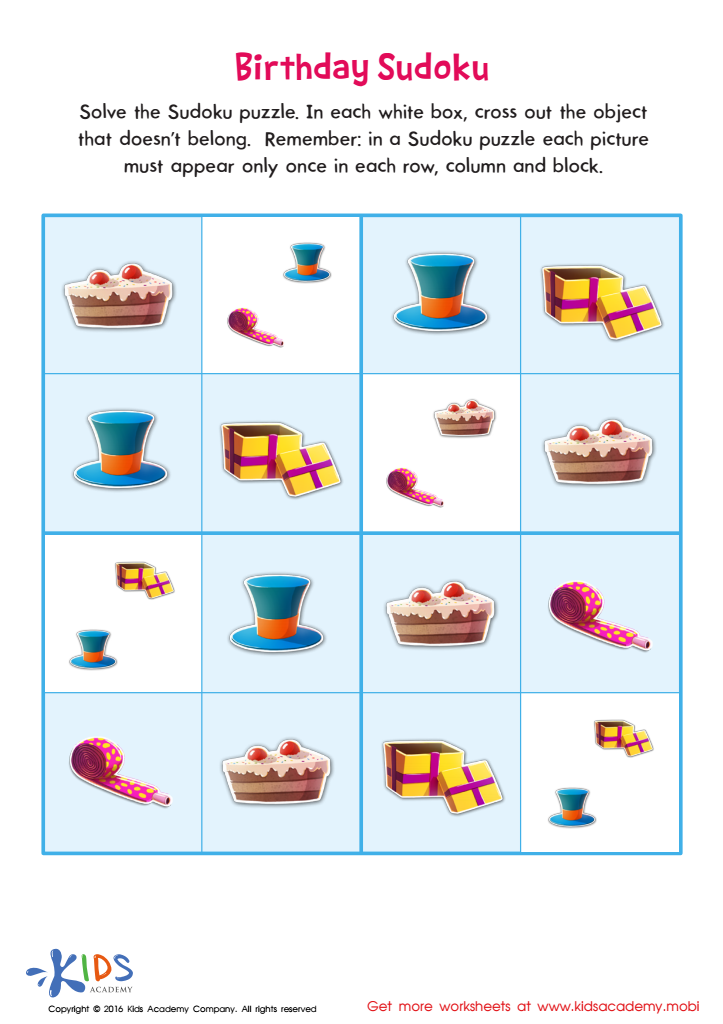

Birthday Sudoku Sorting Worksheet
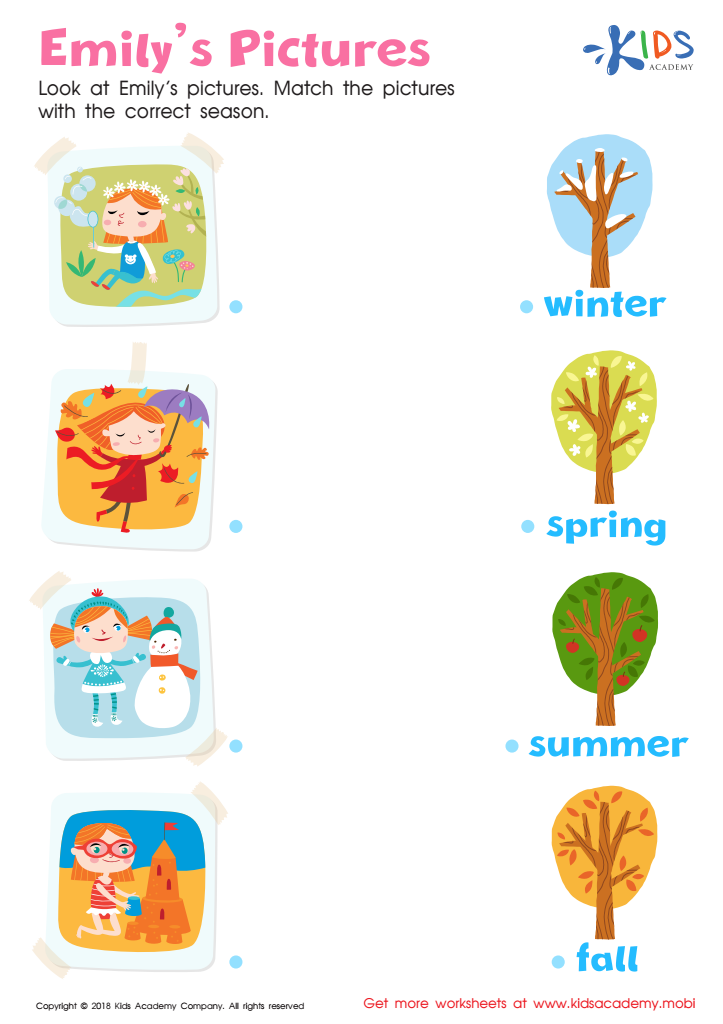

Emily's Pictures Worksheet
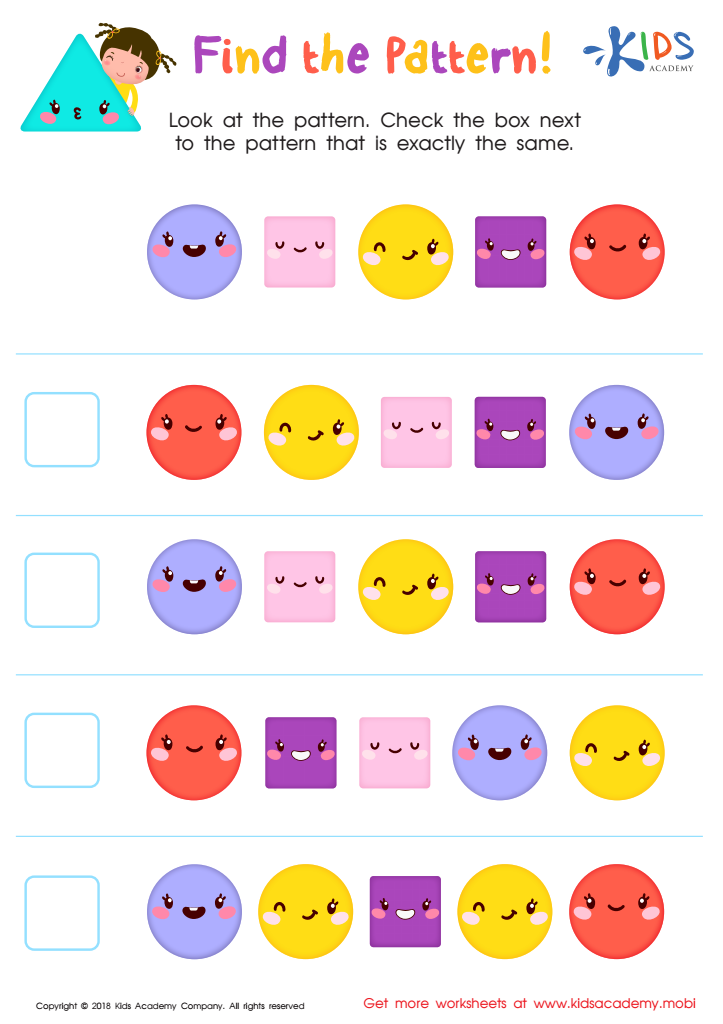

Find the Pattern Worksheet
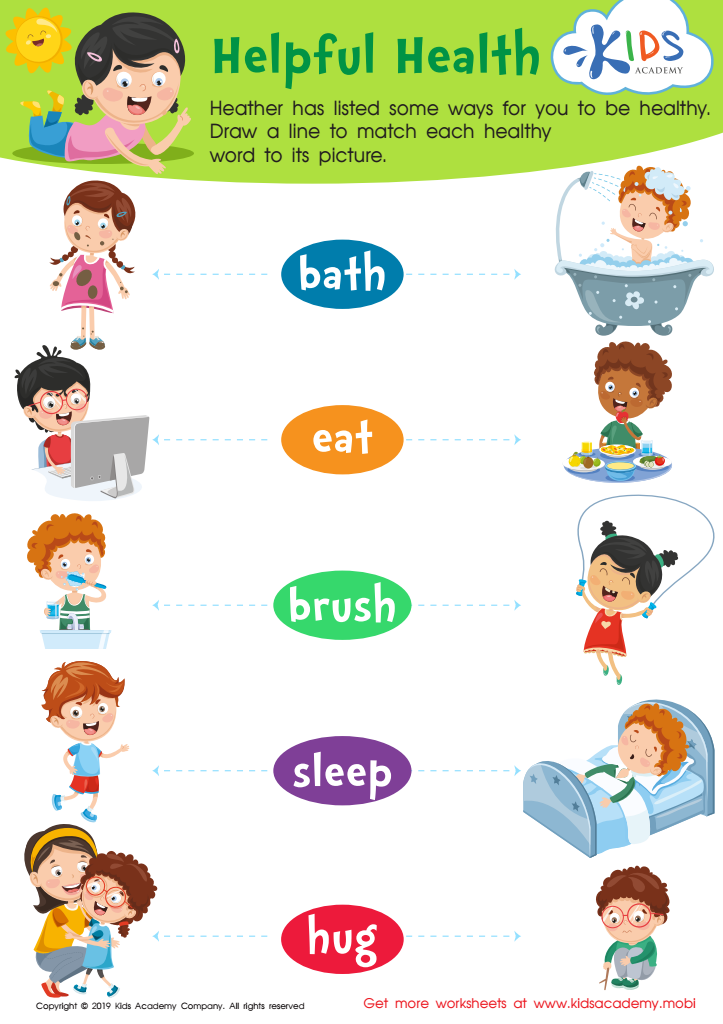

Helpful Health Worksheet
Logical Reasoning Matching is vital for children aged 4-5, as it lays the foundation for critical thinking and problem-solving skills. During this developmental stage, young minds are highly receptive to patterns, categorization, and associative thinking. Engaging in logical reasoning activities helps children learn how to identify similarities and differences among objects, shapes, and colors, enhancing their cognitive development.
Parents and teachers should prioritize this skill because it encourages curiosity and exploration, fostering a lifelong love of learning. By introducing matching games and puzzles, caregivers can provide a fun environment where children practice their reasoning skills naturally. These activities also promote social skills, as children often work in pairs or groups, learning to communicate, negotiate, and share ideas.
Moreover, logical reasoning is linked to early mathematics and literacy skills. Understanding patterns and relationships aids in number recognition and phonemic awareness. Investing time in these activities during early education can significantly influence a child's future academic success.
In conclusion, promoting Logical Reasoning Matching not only supports immediate developmental milestones but also sets the groundwork for future learning and educational achievements. Encouraging such activities forms well-rounded, capable learners who can tackle complex challenges as they progress in their education.
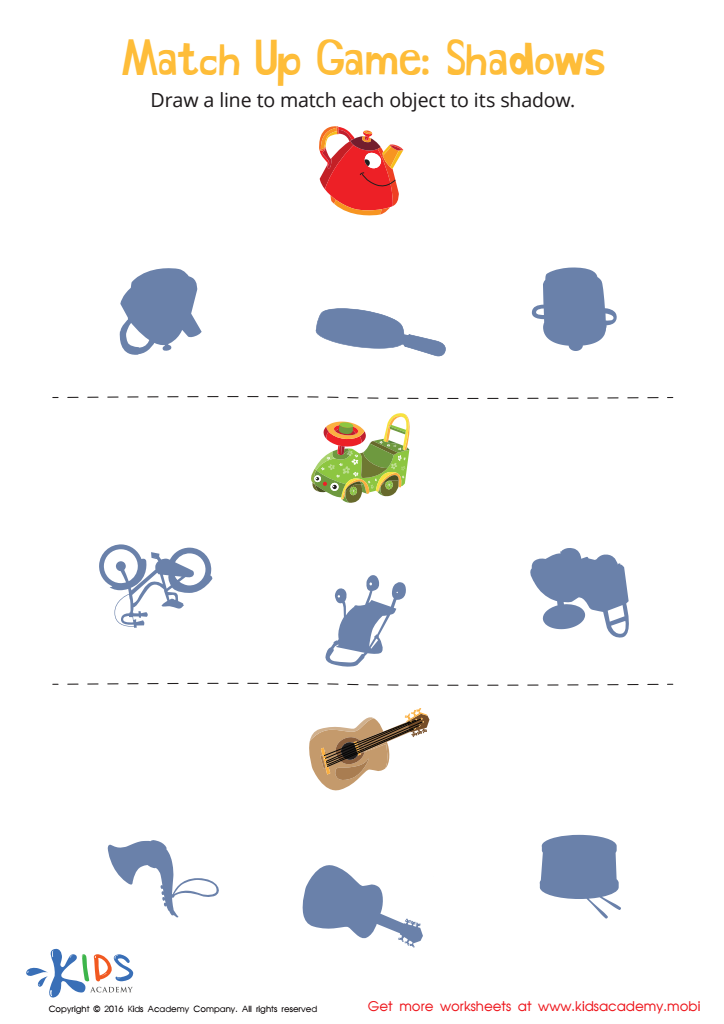
 Assign to My Students
Assign to My Students




















